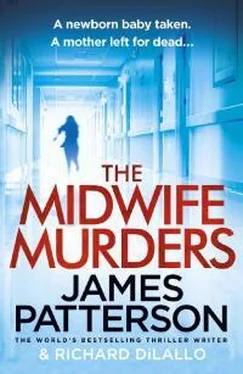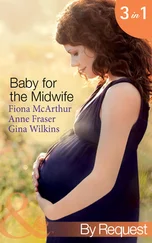“Yeah, I think I am,” I say. “My uncle was a policeman, a damned good policeman. He brought energy and courage to his work—”
Blumenthal interrupts. “Your uncle, was he with the NYPD?”
“No, my family is from West Virginia,” I say.
With a touch of mild sarcasm, Blumenthal says, “I see … West Virginia. ”
“Yeah, that’s right. West Virginia has more opioid problems than any place in America.” As I say the words, I realize that, even though it’s true, it has nothing to do with the case at hand, in this hospital, in this city.
Am I turning into a crazy lady? I’m as tired as Sarkar looks. And Sarkar performed dangerous surgery. All I did was fail at doing the Daily News jumble. I give myself some advice. Shut up, Lucy, I think. Just shut up. But it doesn’t matter. Blumenthal puts a definite end to the conversation. He simply nods and says, “Okay, we’ll stay in touch. And I’ve already texted two of my people to follow up immediately with Helen Whall.”
Sarkar rubs his face and then says, “Thank you, Detective.”
“Thank you, Doctor,” says Blumenthal.
Next thing you know these two will be going out dancing.
Blumenthal has one final good-bye line: “And really, I appreciate your help, both of you. Like I said, we’ll stay in touch. My cafeteria door is always open.”
The three of us laugh softly, then exchange another quiet round of thank-yous.
As we walk to the exit of the cafeteria-office, Sarkar asks, “Are you going home now?”
“Yeah. If I don’t go home, I may just fall asleep standing up right here.”
“Let me give you a ride to your house,” he says.
“No way. You live all the way on the Upper East Side, and I’m out in Brooklyn,” I say. “Plus, you look like a guy who’s just completed a marathon.”
The fact is I just want to be alone, to get one of those end seats on the train, to listen to my music mix.
“I insist,” Sarkar says.
A series of “No, really,” followed by a series of “I insist, really,” eventually ends with Sarkar saying, “Okay, meet you in ten minutes in the doctors’ parking lot. Look for a handsome man driving a blue Lexus.”
“I’ll just look for a blue Lexus. That’ll be enough,” I say.
CHAPTER 18
HERE’S THE THING ABOUT modern luxury cars: When you see the commercials, the cars look really stupid and cheesy. And the commercials themselves are really annoying. They all look like they could have been shown on television in 1970. But once you get inside one of those luxury cars—the big seats, the complicated control system, the absolute quiet—you wonder how you can ever get back inside your 2008 Hyundai again.
Sarkar’s Lexus has something called an ignition fob. To me it looks like a small remote control for a television, but as soon as he touches that fob, the big blue Lexus starts purring like … well, like a big blue Lexus is supposed to purr.
“The best way to get to my place is to take—” I start to say.
“Yes, I know,” he says with a smile.
“Sorry,” I say. “Not everybody knows how to get out of Manhattan and into Brooklyn. Or if they do know, they usually don’t know how to get to Crown Heights.”
“I only know Brooklyn because of two events,” he says. “The first event is the invention of the GPS system, so I rarely get lost. The second event is my divorce.”
“Uh, okay,” I say. “The GPS I get. On the other thing, the divorce, well, would you like to explain what you mean by ‘the second event is my divorce’?”
He laughs. “Of course. Obviously I was trying to be provocative,” he says. “Instead I ended up just being confusing. And possibly quite irritating.” Then he turns a bit more somber. He talks as if he is almost telling a story about someone else, not him.
“When my wife, Priya, and I first married it was, as they say, heaven on earth. She was younger than I, but, also as they say, she was wise beyond her years. Plus, she was so beautiful. A perfect shape, magnificent skin, a smile that …” He pauses, as if he is recalling the shape, the skin, and the smile. “And then, merely a few months into the marriage, while I was an ob-gyn intern at Long Island Jewish Medical Center, she became pregnant. Could there be better news for a couple who loved each other so much? We were joyful. A baby girl. We named her Devangi, a goddess.”
Sarkar slows down his driving, and he completely stops his story.
I feel that he wants me to ask the question that I ask: “So what happened?”
He pauses, then, “I returned one morning—three o’clock, after a difficult delivery. My wife and Devangi were missing, gone.”
“My God. Where to?” I ask.
“The police in New York were totally not interested in the case. I think they believed we were just peculiar foreigners. So then I thought maybe Priya had gone back to her mother’s. I hired two different investigators in Northeast India. A waste of money. The most and the best that I have heard is that my wife and child have crossed the border into Nepal.” Sarkar spits the word out again: “Nepal! Nepal! Of all places. That bitch Priya might as well have gone to the moon. Or she might as well have taken the baby into hell itself. That is how impenetrable Nepal is.”
Sarkar is once again silent. I have noticed that he ignored some of the GPS suggestions, and I think we are driving somewhere in Brooklyn’s East Flatbush section, an area as impenetrable to me as Nepal is to Sarkar.
When Sarkar speaks again, he speaks quickly and honestly. “I traveled to India. I hired detectives. Nothing. My wife and my baby have left the face of the earth, at least they have disappeared from my part of it.”
I now speak as slowly as he has spoken fast. “I am truly sorry for your problem and your loss.”
“Thank you, Lucy. And I know you well enough that I suspect you mean what you say.”
Suspect? He suspects? He’s not certain? WTF?
I say nothing, and Dr. Sarkar moves on to the story’s wrap-up.
“So … when my wife and daughter vanished, I would wake up very early, and most usually I was waking up all alone. Most days I was, of course, going to the hospital, going to work. But on Sunday mornings I felt terribly lonely, and for some reason I would drive into Brooklyn. Brooklyn seemed to lift my spirits. I don’t know why. I’d buy a buttered bagel and black coffee and park near the Botanic Garden and relax. It worked like magic.”
He looks at me, and we both smile.
“Well, at least can we stop and get a few of those magical bagels?” I ask.
“I am certain the bakery has since closed.”
For some reason the fact that the bakery has closed makes me feel incredibly sad. We drive in silence for a few minutes. What’s wrong with me? Why am I fighting back tears?
“That’s it. That’s the story. It’s not much, I know. A lonely guy wakes up, decides to hide out in Brooklyn, smokes cigarettes in a beautiful garden, drives around interesting places—Park Slope, Bed-Stuy, sometimes as far as the Atlantic Ocean itself, down at Brighton Beach. But the ride through Brooklyn usually calmed me down. Plus, I learned a lot. I was an eyewitness to the gentrification of Williamsburg. I watched weekly progress on the construction of Barclays Center. And I discovered a great deli in Mill Basin. And … I think I’ve talked enough.”
I only say, “Thank you for sharing.”
And Sarkar says, “I’m very glad I told you about my wandering Sundays, and I’m very glad you at least pretended to care.”
That certainly pisses me off. “I was not pretending!”
CHAPTER 19
WE RIDE SILENTLY FOR a few minutes. For blocks and blocks and miles and miles, the only sound is the classical music coming from the speakers. He turns up the volume. Someone is sitting in my ear playing a cello.
Читать дальше












